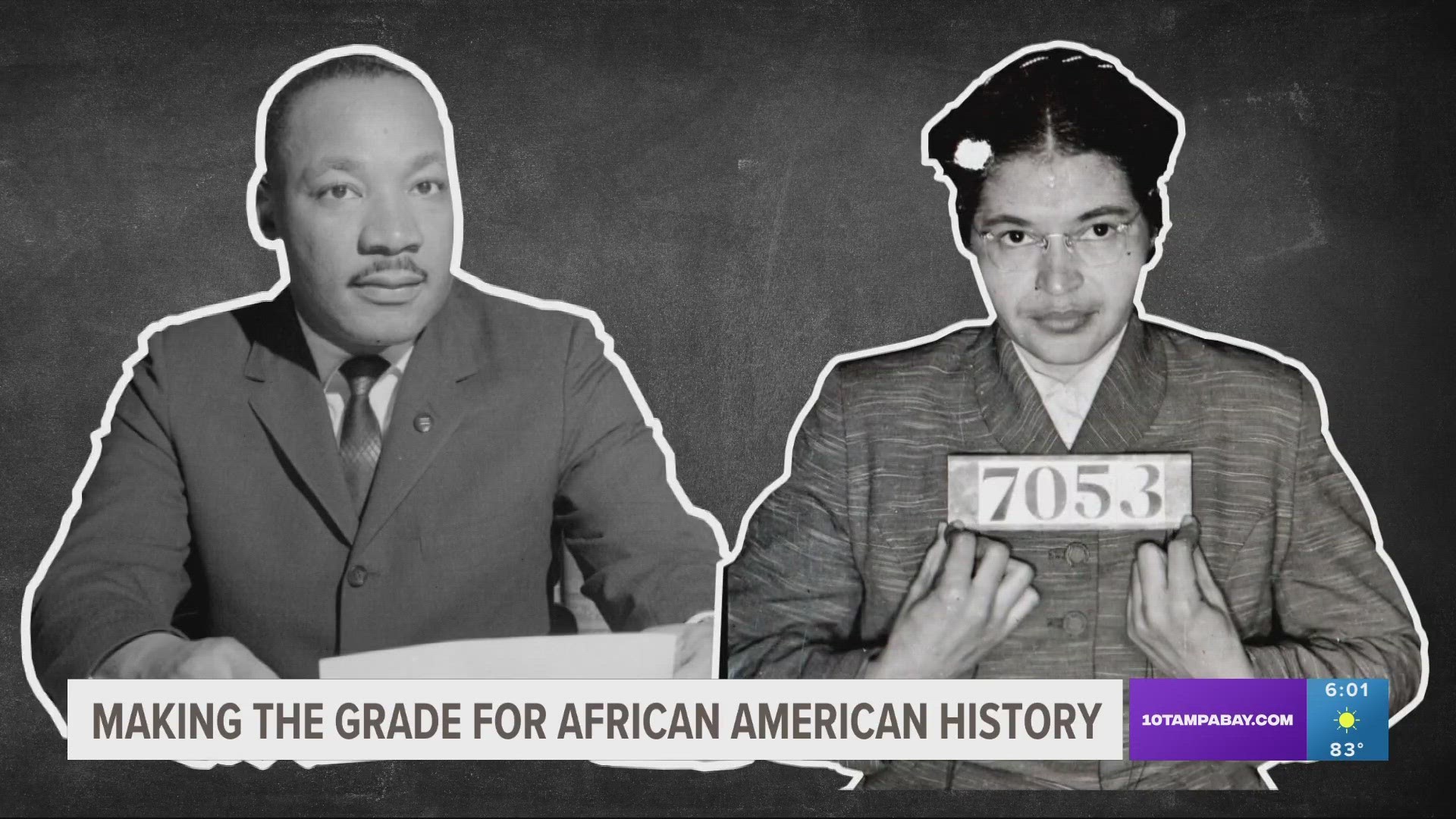Florida's Black history law lacks accountability needed to be effective, task force leader says
A Florida law requiring Black history instruction has been in place for 28 years, but state task force leaders say lack of accountability makes it hard to enforce.

A state law requiring Black history education in K-12 schools has been on the books for 28 years.
Yet just 11 of Florida’s 67 school districts have earned exemplary status in teaching African American history. A state-commissioned task force says there’s little beyond an online reporting portal to hold districts accountable for incorporating comprehensive lessons in the classroom on this important topic.
Hungry for Black history Florida law requires going beyond the basics.

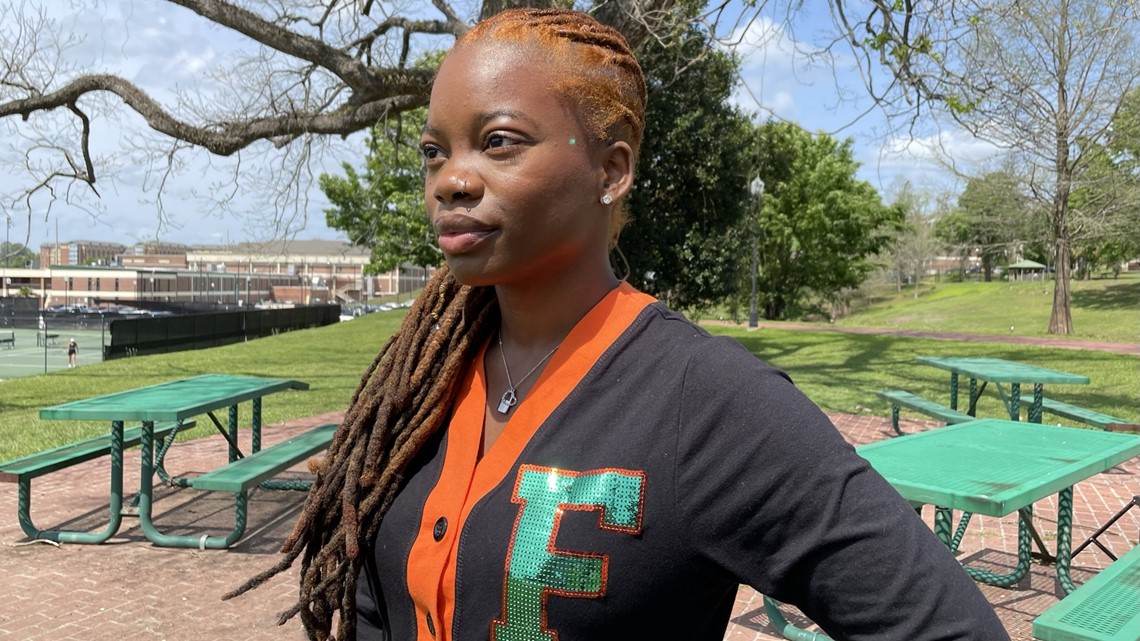
Attending Florida A&M University changed Marie Rattigan’s life: "Oh, man, Florida A&M University means love, means charity, means unity, means history."
The South Florida native says she learned more of her own history at FAMU than she ever did in Florida public schools.
"You just learn the basic level history. You learn about Martin Luther King — the surface-level Martin Luther King, not the radical Martin Luther King. You learn about Rosa Parks, and you just learn about, like basic things," Rattigan said.
However, the Florida legislature passed a law in the mid-90s that requires going beyond the basics. Florida statute 1003.42(2)(H) says students are supposed to learn African and African American history, including what happened to Africans before slavery in America, the middle passage, slavery, abolition and “the history and contributions of Americans of the African diaspora to society.”

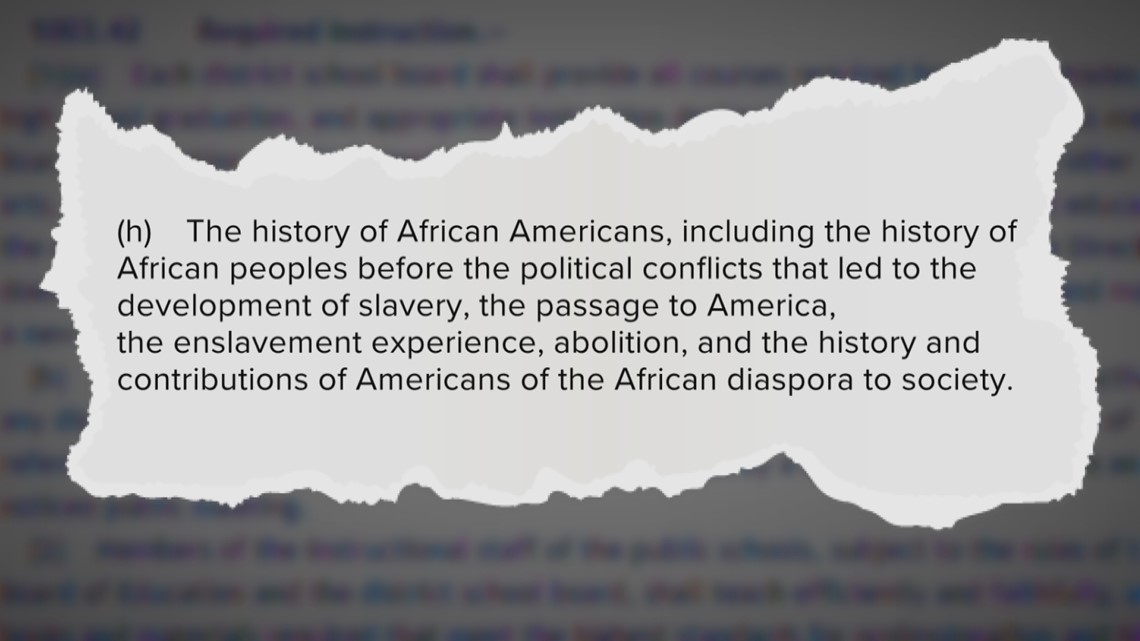
In the nearly 30 years the state’s law on teaching African American history has been on the books, only a few of Florida’s 67 school districts have earned exemplary status from the Commissioner of Education’s African American History Task Force.
"Only 11 of those districts have instituted any substantial influence or infusion of African-American history,” said Bernadette Kelley-Brown, principal investigator and former chair of the task force.
The AAHTF’s mission is to help districts implement the state’s law on Black history, but members say with limited power and shrinking membership, it’s been hard.
10 Investigates’ Emerald Morrow and Jenna Bourne attended the group’s annual public meeting and were the only reporters there as members talked with the Department of Education about the fragile state of Black history instruction in Florida.

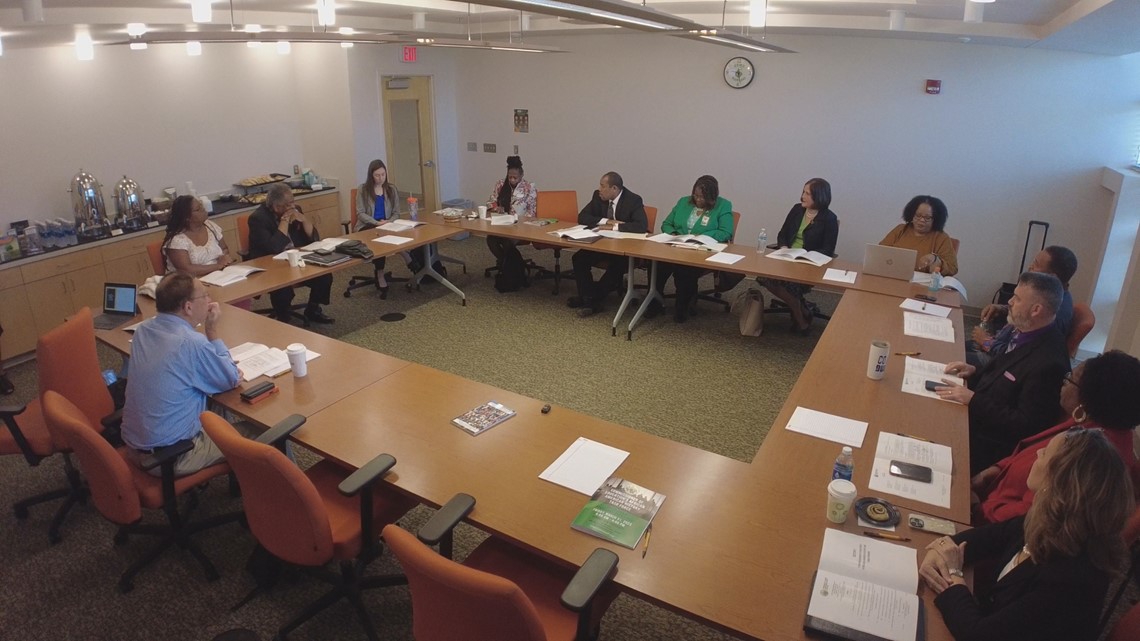
This year alone, the battle over how Black history is taught in Florida schools has intensified, with legislation targeting diversity, equity and inclusion initiatives, and school districts pulling books for review that discuss race.

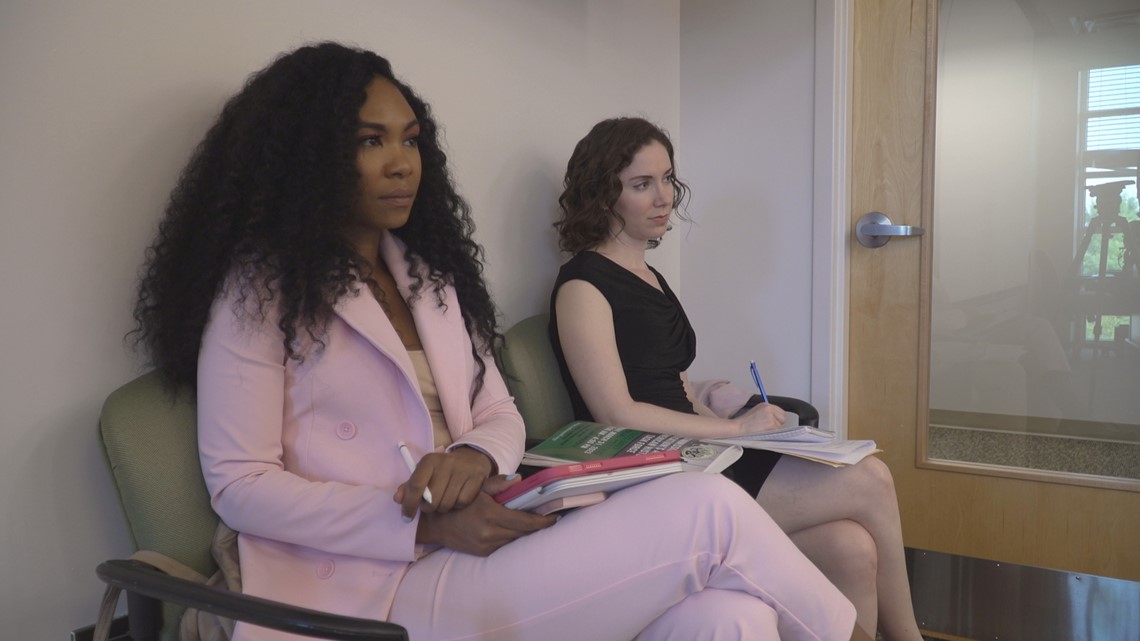
In Duval County, school officials faced backlash after pulling a book on baseball legend Hank Aaron. In Pinellas County, North Shore Elementary banned a movie on civil rights icon Ruby Bridges. A school committee reinstated the film after national outrage.
"It's apparent that individuals are trying to rewrite history,” said Goliath Davis, the former St. Pete police chief and deputy mayor. Davis first reported news of the Ruby Bridges ban in The Weekly Challenger.
In another challenge to Black history education in Florida, the state rejected an Advanced Placement African American Studies course, citing concerns with critical race theory and “indoctrination.”
"We have guidelines and standards in Florida,” Gov. Ron DeSantis said. “We want education, not indoctrination. If you fall on the side of indoctrination, we're gonna decline."
High-profile civil rights attorney Ben Crump threatened a lawsuit if the state does not move forward with the course.
Governor Ron DeSantis fired back at critics concerned that the state's rejection of the AP African American Studies course meant a bleak future for African American history education in the state. He said parts of the class are "more of ideology being used under the guise of history."
"If you want to have things like the CRT, the intersectionality, the queer theory for an AP African American Studies course, stand up and justify that. Tell us why that is appropriate," he said at a press conference. "Don't lie and say somehow Florida is not teaching all the things throughout American history, which is not only allowed, it is required."
The 16 percent Just 11 of Florida's 67 school districts are deemed exemplary in teaching Black history.

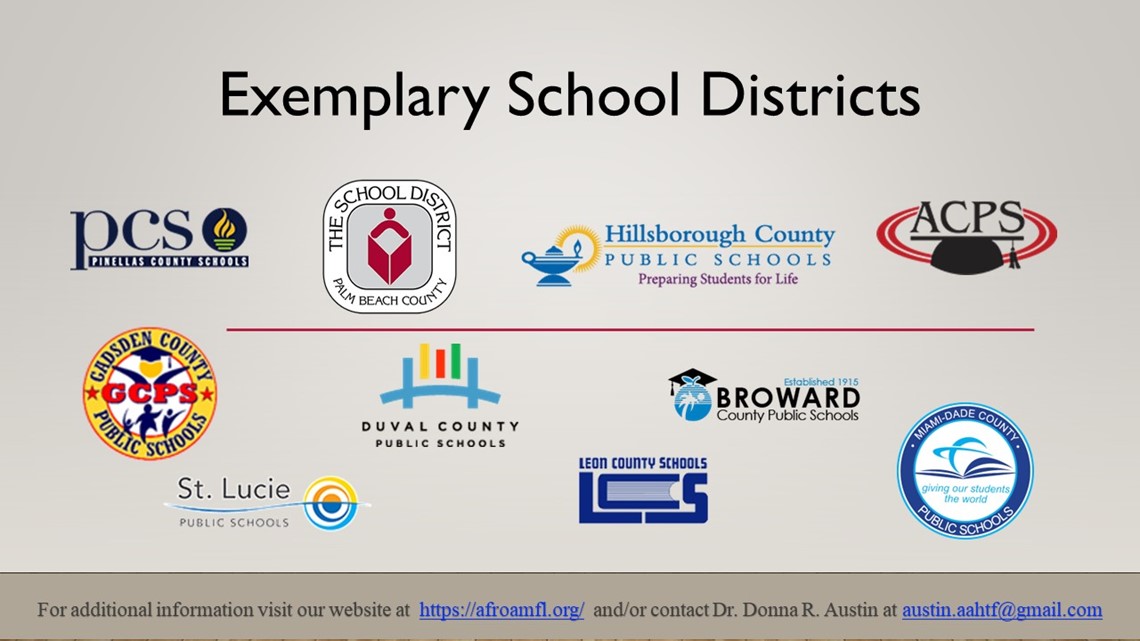
Despite challenges to Black history education in Florida, some districts excel. But there are very few.
“Out of the 67 districts, there are only 11 who have been deemed exemplary,” Kelley-Brown said.
Districts must apply for this distinction. In the Tampa Bay area, just the Pinellas and Hillsborough County school districts made the list.
Both Sarasota and Pasco say they are interested in applying.
“We have six criteria where districts, if they're looking to get that type of approval or endorsement, they must provide a critical document station, proof of their infusion and the teaching and training of African and African American history in their district,” Kelley-Brown said.
10 Investigates Emerald Morrow: "It sounds like what you guys consider exemplary should be standard."
Bernadette Kelley-Brown: "It should be. I agree. But it hasn't been."
The task force does not control what local districts teach, the classes they offer or even the books they use.
"I'm hoping that legislation will be passed that gives more or asks for more accountability from districts on required instruction because it does say it is required. It's not, 'if you want to or if you think about it,' it's required instruction,” Kelley-Brown said.
10 Investigates tried to talk to the Florida Department of Education at the task force’s annual public meeting in March. A spokesperson denied our request for an on-camera interview and directed us to email.
We have not yet heard back.
Portal questions State system shows wide variation in how districts teach Black history.

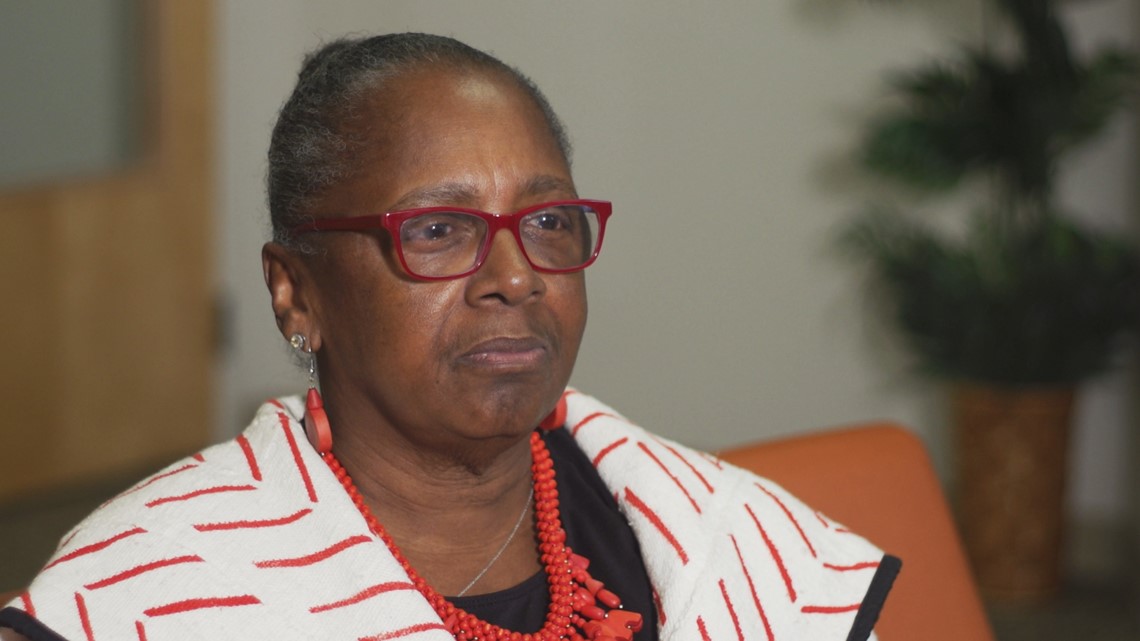
The task force told 10 Investigates that FLDOE created a portal for districts to report how they teach Black history.
Kelley-Brown says it doesn’t do enough to hold districts accountable.
"In 2019, there was a requirement that districts report how they are addressing required instruction. And so, the Florida Department of Education set up a portal for them to report that," she said. "But here again, there were no consequences if you did not and no financial or any other sanctions that would happen to districts if they hadn't, you know, followed the required instructions."
10 Investigates’ Emerald Morrow: "Are you satisfied with what you've seen in the portal?"
Bernadette Kelley-Brown: "It has pretty much — check a box. So, it's nothing — no documented citations or evidence that it's being done. It's just, ask the question, 'Do you do this? Do you do that?' And you can say yes, no."
Morrow: "So no accountability."
Bernadette Kelley-Brown: "No accountability."

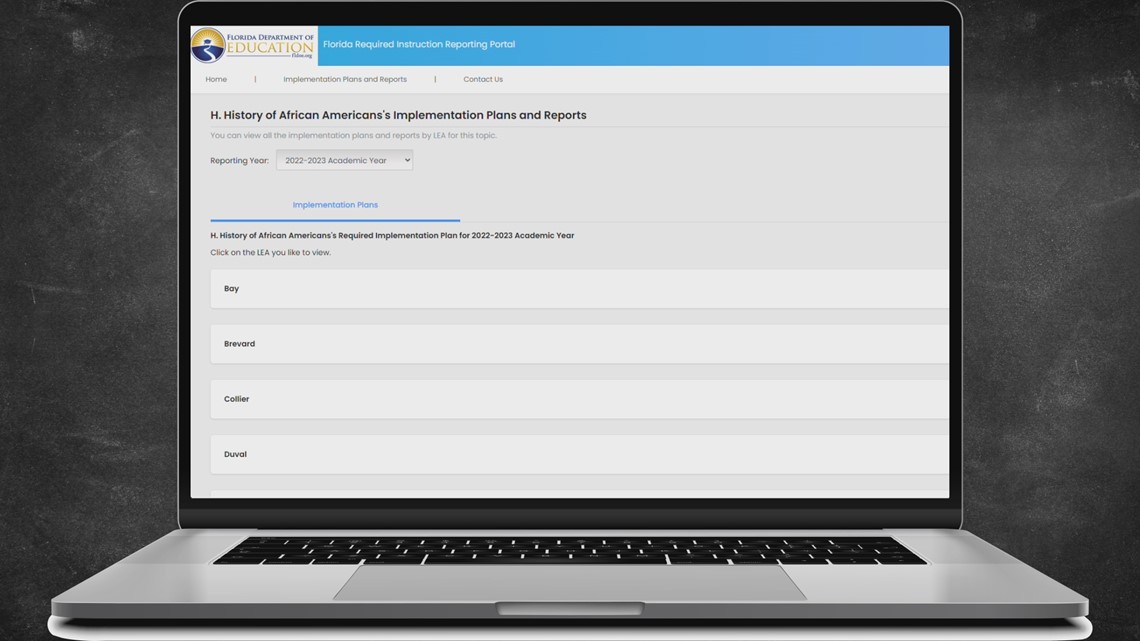
FLDOE Vice Chancellor Dr. Margaret Peggy Aune talked about the portal at the task force meeting. 10 Investigates tried to speak with her, as well. She denied the request and directed questions to the communications office.
A search through the FLDOE required instruction portal for the 2021-2022 school year shows all Tampa Bay-area districts posted reports and implementation plans for teaching Black history — and there was a lot of variation.
Hillsborough, Pinellas and Polk all offer African American history courses. Citrus, Hardee, Hernando, Highlands and Pasco do not — although Pasco did recently form its own African American History Task Force to improve its offerings and to apply for exemplary status from the state task force.
Other districts say lessons on Black history are embedded in civics and history curriculums.

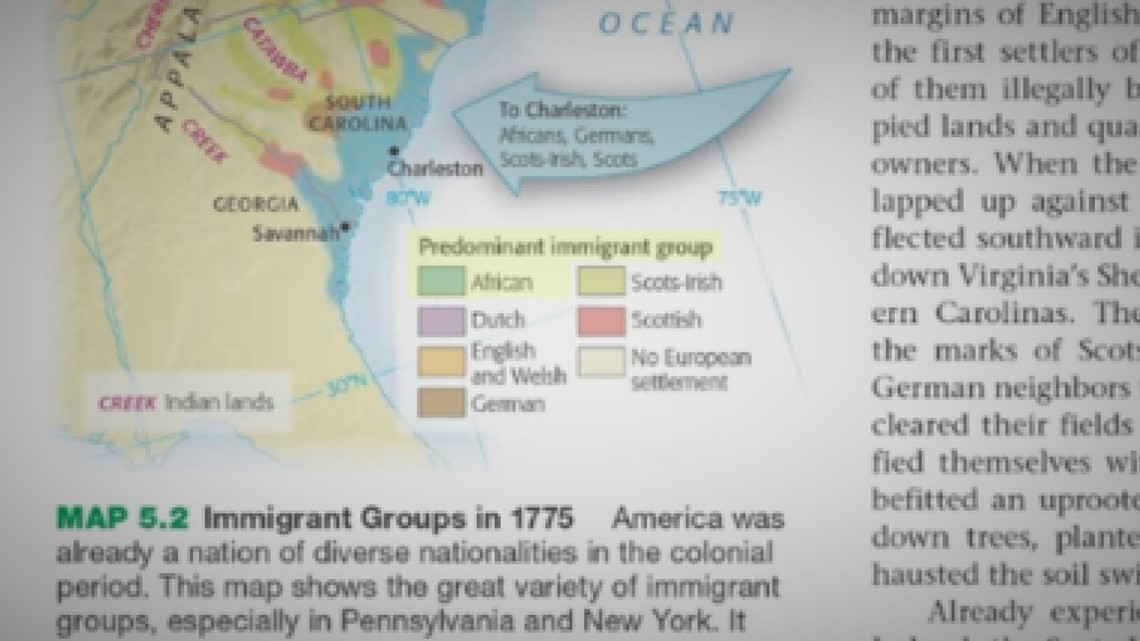
The portal also shows Citrus Schools uses a version of "The American Pageant" that refers to enslaved Africans as immigrants.
However, in an email to 10 Investigates, the publisher said the map in question is now updated in newer versions:
"Since acquiring The American Pageant title, Cengage has been actively working with the authors to improve the text and ensure the content reflects current pedagogical and scholarly interpretations of American History. The map caption in question was revised to reflect that the influx of new arrivals to the U.S. in 1775 was driven by both free and enslaved people. The revised caption can be found in the most recent printings of the 17th edition (2022), however, there were multiple printings of the 17th edition, and titles without this update may still be in circulation.
"We believe teaching American history is an important responsibility and critical to understanding our nation and the issues we face today. Our understanding of history is a continuous conversation and as an educational content provider, we are committed to developing quality learning materials that provide an accurate and fair account of our past."
A spokesperson for Citrus Schools says students use the 16th edition of "The American Pageant." It's unclear when the textbook will be updated.
"It's still up to the districts to choose which books they want to adopt,” Kelley-Brown said.
Black history's future Where do lessons go from here?

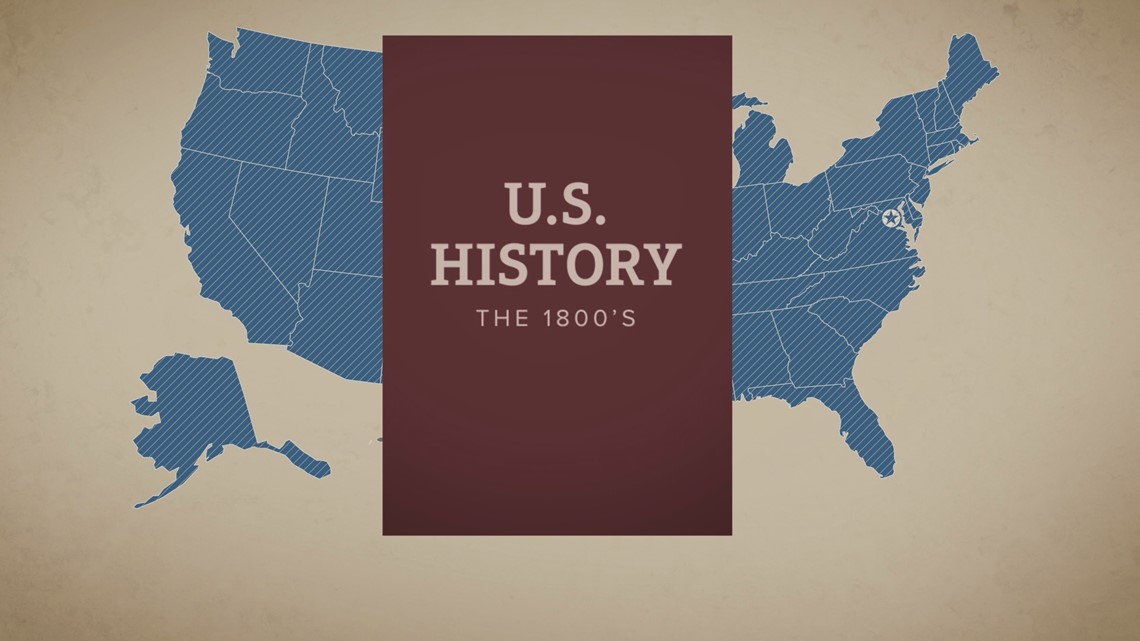
Kelley-Brown says she’s hopeful districts will lean on for guidance about teaching Black history, especially in today’s climate where laws and policies are changing and concerns about critical race theory are amplified.
“Critical race theory [is] not taught in K-12,” Kelley-Brown said. “So, what we're trying to do now is correct some of that communication to make sure that parents and students feel comfortable learning about the history of African and African American peoples.”
She’d also like to work more with the state, saying she wants, “a better communication with the Florida Department of Education, a clear pathway to implementing and infusing African and African-American history into all of K-12, and not just in history, but all across the spectrum, from math to science.”
It’s something Rattigan says she could have benefitted from during her time in Florida public schools.
"We need to teach American history the good, bad and the ugly, right? We shouldn't be selective on what we're teaching,” Rattigan said.
Emerald Morrow is an investigative reporter with 10 Tampa Bay. Like her on Facebook and follow her on Twitter. You can also email her at emorrow@10tampabay.com.


